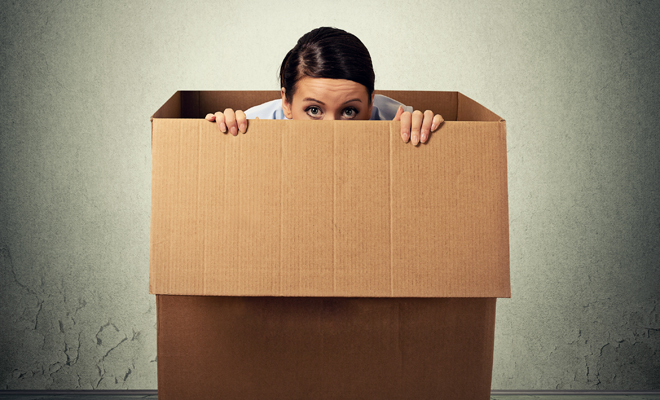Surely you have said more than once that you had a phobia of something, an object, a situation, an animal or even a sensation. And it surely wasn’t true. Phobias are a real problem that can affect your whole life, that’s why you need all the information. Discover the definition of phobia, its symptoms, its causes and the most frequent treatments in our dictionary.

The definition of phobia
We have all been afraid at some point. Sometimes for a reason and sometimes for no apparent reason. Fear is a normal reaction and an adaptive defense mechanism that we need to survive because it alerts us to danger. But this is not a phobia, right?
According to the RAE, a phobia is a distressing and uncontrollable fear of certain acts, ideas, objects or situations, which is known to be absurd and approaches obsession. As often happens, this type of definition falls short of understanding the true definition of a phobia.
The phobia becomes a pathology that affects all areas of your life. Indeed, it is an irrational and excessive fear of certain situations that can be places, objects, people, animals or emotions.
Symptoms of irrational fears
different phobias that are very different from each other, but they are all characterized by the same symptoms and have some common characteristics such as avoiding that stimulus, uncontrollable fear, and the feeling that something is not working inside of you.
The symptoms of phobias are the same as those of anxiety, given the close relationship between one disorder and the other.
1 Sweating.
2 Palpitations.
3 Sensation of suffocation.
4 Dizziness.
5 Feeling of unreality.
6 Shame.
7 Paralysis.
8 Tingle.
9 Panic attack.
Causes of phobias
A phobia is detected when the symptoms become so evident that they begin to affect the life of the person who suffers from it. But we keep asking ourselves, what causes that phobia?, Why is a person unable to go up in an elevator because he has claustrophobia and another does not feel any fear?
Most of the time we can look for the cause of the phobia in anxiety. Phobia and anxiety are different disorders but they feed off each other. Phobia produces anxiety and anxiety produces phobia. You will have noticed how in the moments in which you have suffered from anxiety problems, your fears in life have also increased.
Another frequent cause of phobias is conditioning. If you have had a traumatic experience in the past, your behavior is conditioned by that unpleasant experience. It is clearly seen in the case of gynophobia or fear of dogs, for example. And sometimes, phobias are reinforced by cultural factors such as eremophobia or ophidiophobia.
How to overcome phobias?
Phobias can be overcome, but in no case will you be able to do it on your own. Psychological help is needed for the treatment of phobic disorders and each professional will choose the most appropriate therapy depending on the person and the degree of the phobia. Different treatments can be used, sometimes including medication, relaxation techniques, or even hypnosis.
However, it has been proven that the most effective way to overcome phobias is cognitive, which works both on the situations that cause the phobia, looking for its origin, as well as the thoughts and emotions that are generated and the behavior to which they lead you.
